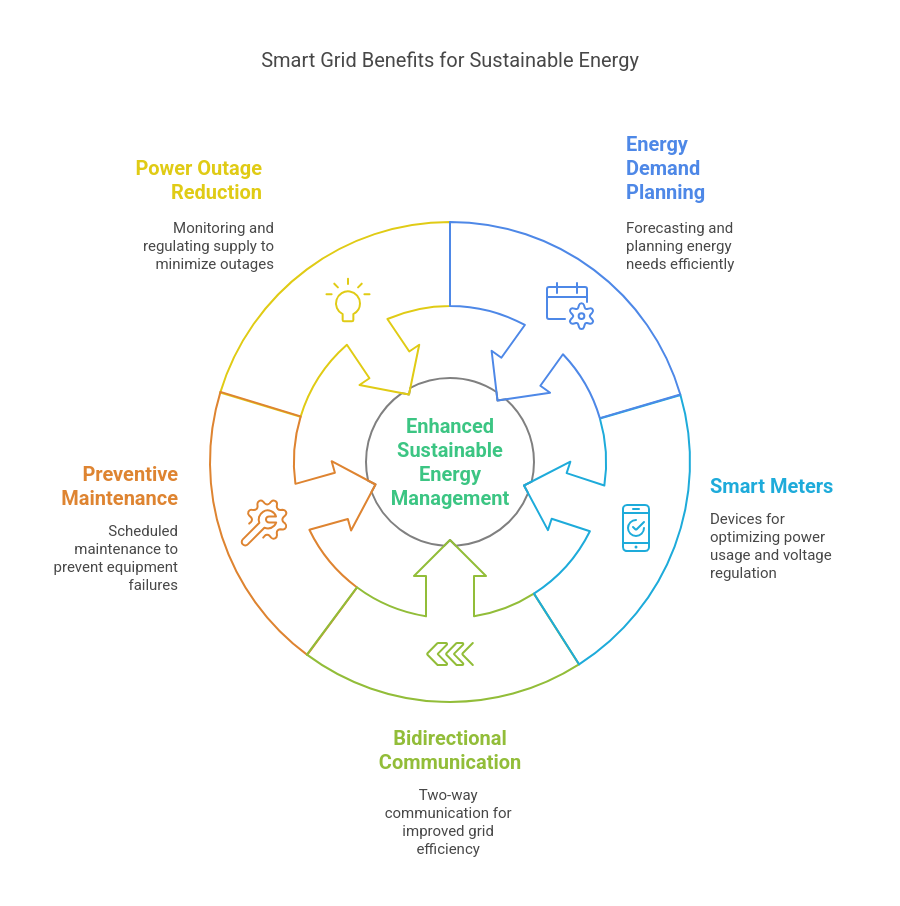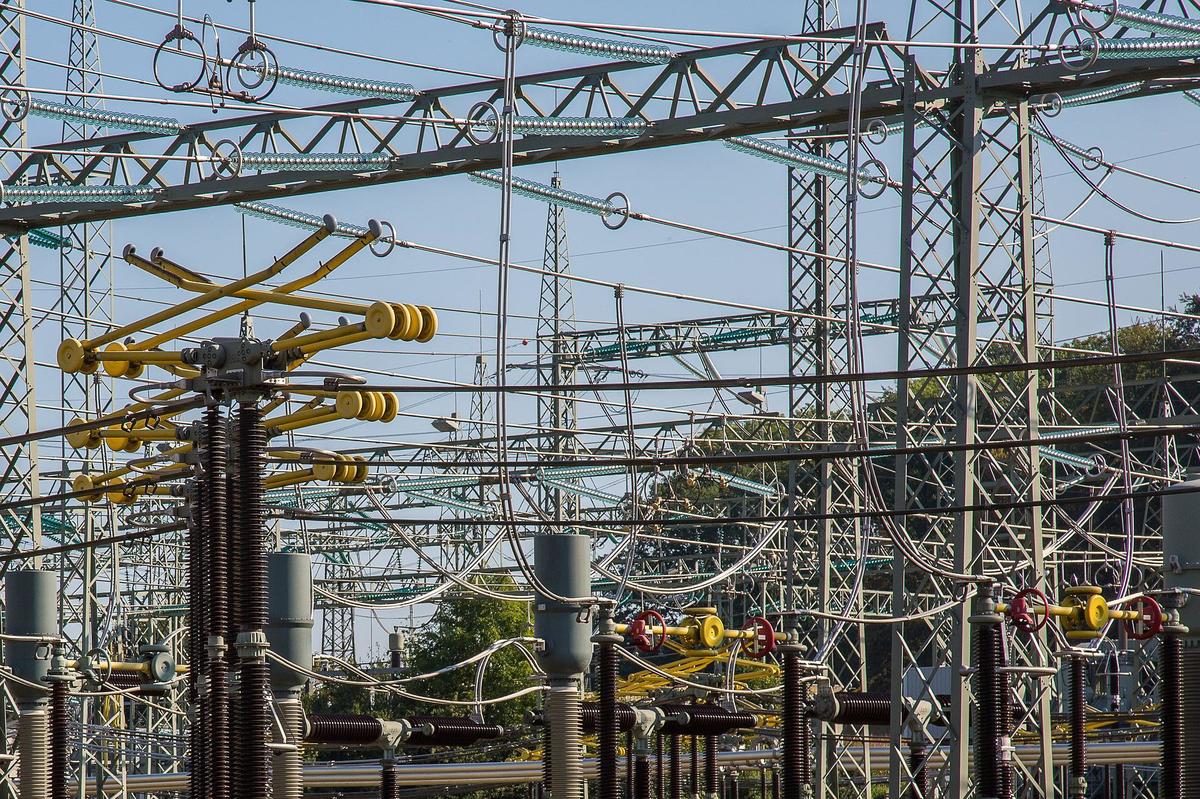What is sustainable energy management?
Sustainable Energy is the planned and synchronized use of renewable energy resources to achieve cost-efficient and ecologically efficient power substitutes. The most popular sustainable energy sources, including wind, solar, and hydropower, are also renewable.
In simple terms, sustainable energy management can be defined as the systematic and coherent use of sustainable energy to minimize costs, regulate overall energy consumption, and save the environment from further degradation at the same time. Hartek Group actively promotes sustainable energy solutions, contributing to a greener and more efficient future.

What are the benefits of a Smart Grid System for harnessing Sustainable Energy?
Smart grid technology enables the effective management and distribution of renewable energy sources such as solar, wind, and hydrogen. The smart grid system connects a variety of distributed energy resource assets to the power grid.
Smart grid system benefits sustainable energy management in the following ways:
1. Planning and forecasting the energy demands
Energy forecasting and planning is an essential characteristics of an intelligent grid system. It plays a pivotal role in sustainable energy management as it helps manage crucial functions such as on-demand energy management, optimum dispatch of energy, load shedding, etc. A smart grid system also eliminates the possibility of prediction error during efficient energy forecasting.
2. Better utilization of Power with the Energy Management Systems
Smart grid systems use peripherals like smart meters as a part of their energy management system for better power utilization. Smart meters are crucial for managing voltage and power on the distribution grid and eventually regulate the voltage or supply of power according to the needs and usage.
3. Reduction in power losses and ensure increase in system efficiency
Smart grid systems function on bidirectional communication, i.e., the constant two-way communication between the power plants and the consumers. In simple terms, the smart grid effectively uses information technology to channel better communication, interconnectivity, and power grid automation. It eventually encourages and facilitates honest time communication between the power system suppliers and consumers to optimize energy distribution, reduce power losses, and increase system efficiency.
4. Take preventive shutdowns with proper scheduling for the maintenance of the electrical equipment
Smart grid systems perform preventive shutdowns whenever they detect or identify any sign of disturbance or malfunctioning in the electrical equipment. Moreover, if the malfunction or problem in equipment is left unattended, it can lead to humongous losses, massive and prolonged inconveniences. In traditional grids, the signs of damage often go unnoticed and need to be identified manually. Still, in an intelligent grid system, any shortcoming is automatically detected and reported using artificial intelligence and machine learning technologies.
5. Reduce the risk of loss due to power outages
Power outages or blackouts generally happen when the electricity demand exceeds the supply. Smart grid systems eliminate the chances and reduce the frequency of such incidents as they continuously monitor and regulate the power supply from the distributor to the consumer.
How does Smart Grid work?
The smart grids use equipment like smart meters and intelligent electronic devices that facilitate honest time communication and accurate prediction of supply and demand. It also channelizes the flow of electricity automatically to the end users while preventing the transmission lines from overheating.
However, even if a disturbance happens, an intelligent grid system automatically isolates the outage to prevent it from converting into a large-scale blackout.
Every sustainable energy management strategy aims to plan, monitor, and control energy use to conserve natural resources, safeguard the climate, and reduce energy costs.
Smart grids can control energy usage and manage its consumption at peak hours. Moreover, they can also contain other functions, like identifying and reporting problems, detecting equipment failure, and analyzing varied data produced by industries to optimize their energy consumption.
Smart Grid
When talking about sustainable energy management, the mention and discussion of “Hartek” is extremely requisite as they are not only the pioneers in the field of energy management, procurement, power management, sustainable energy alternatives, smart city development, and more but are also one of the leading rooftop solar companies in the country.
For reliable and innovative energy solutions, contact Hartek Group – your trusted partner in sustainable power.
With their technologically advanced smart grid systems, exceptionally expert and experienced team, and dedicated zeal for ‘Making The Future Powerful’ through sustainable alternatives, they have revolutionized the energy sector and transformed the power usage strategies for many industries and sectors.
FAQ’s:-
1. What is sustainable energy management?
Sustainable energy management is the efficient use of renewable energy to reduce costs, optimize consumption, and minimize environmental impact.
2. How does a smart grid help in sustainable energy management?
A smart grid improves energy distribution, reduces power losses, enables real-time monitoring, and ensures efficient energy use through automation.
3. What are the benefits of using a smart grid system?
A smart grid enhances energy forecasting, prevents outages, reduces losses, improves efficiency, and enables better power utilization.
4. How does a smart grid prevent power outages?
Smart grids monitor energy supply and demand in real-time, regulating power distribution and isolating faults to prevent large-scale blackouts.
5. Why is Hartek a leader in sustainable energy solutions?
Hartek pioneers smart grid technology, renewable energy management, and power optimization, transforming India’s energy sector with innovation.
Share:
Explore More
Keep up-to-date with the most trending news stories that are shaping the world today.







